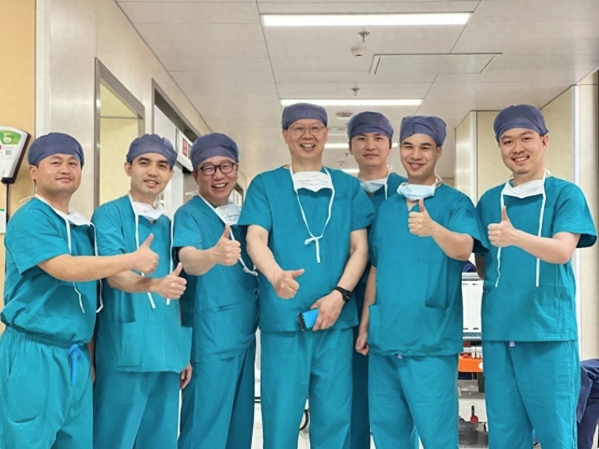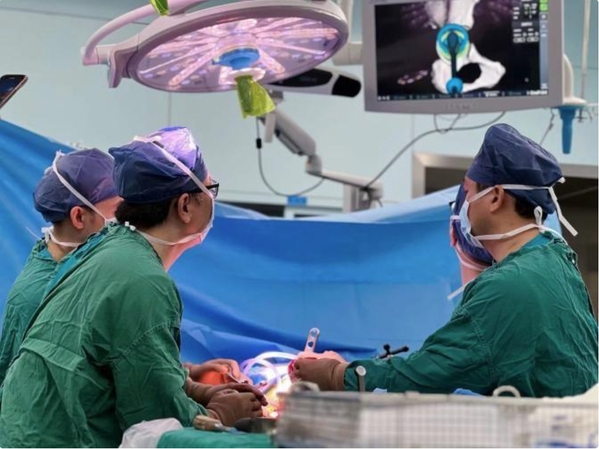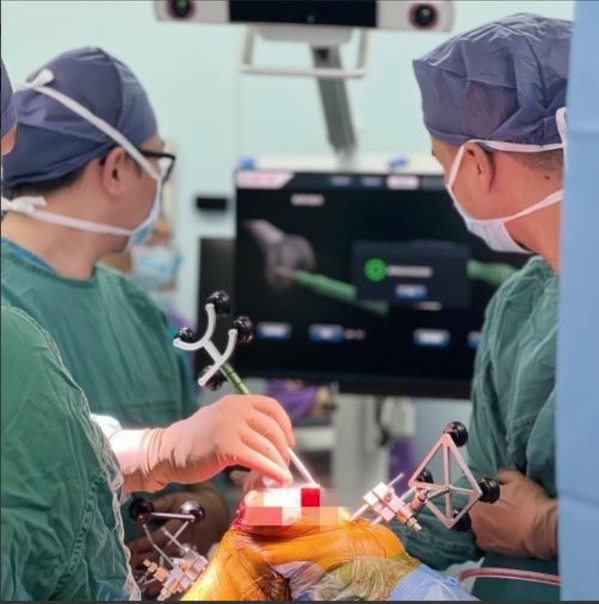On April 18, 2024, two esteemed orthopedic surgeons from Bangkok, Thailand, embarked on a two-day visit to the First Affiliated Hospital, Zhejiang University School of Medicine (FAHZU). The visit aimed to explore advancements in joint replacement technologies, particularly in anterior hip replacements using Visual Tracking System (VTS) navigation and robotic-assisted knee replacements, enhancing medical collaboration and setting international benchmarks in orthopedic care.

Drs. Thakrit Chompoosang and Patcharavit Ploynumpon, both respected figures in Thailand's orthopedic community, brought their passion for medical innovation to China. This trip marked a significant step in fostering medical cooperation between the two nations.
Guided by Professors HU Yiheng, XIE Jie, and ZHAO Fengchao, the Thai surgeons examined the techniques behind VTS-guided anterior hip replacement surgeries developed by the FAHZU team. This method uses advanced optical navigation to achieve real-time 3D positioning and precise guidance, greatly enhancing surgical accuracy and safety. The Thai doctors lauded the hospital’s approach to complex hip disorders, appreciating the personalized and minimally invasive strategies that provide valuable insights for their work in Thailand.
The visit also showcased the latest in knee replacement technology—the Kuanrui Knee Replacement Robot. Known for its robust image processing and precise execution capabilities, this system left a strong impression on the visitors. They experienced the full spectrum of the robotic system, from pre-surgical 3D modeling and planning to the actual bone cutting and implantation, noting its potential to improve surgical outcomes and reduce recovery times.
Furthermore, the visit included a symposium where both parties exchanged insights on the newest developments in joint replacement, discussing technical challenges, post-operative care, and clinical experiences. This session encouraged a meaningful exchange of ideas and helped integrate clinical practices and research approaches between China and Thailand.
Looking ahead, this visit deepened the understanding of advanced joint replacement techniques among the Thai surgeons and strengthened the bonds between the medical institutions of the two countries. Both sides are eager to continue their collaboration through expert exchanges, teleconsultations, joint research projects, and technical training programs.


Prof. HU highlighted the importance of such international exchanges, stating, We warmly welcome these interactions as they not only elevate our global stature but also contribute to the advancement of global orthopedic care.
The collaboration between the Thai surgeons and FAHZU represents a solid step forward in the orthopedic field. As medical technology rapidly advances, sharing knowledge and expanding international cooperation remain key to enhancing global medical progress. With continued deepened exchanges, more patients stand to benefit from higher quality and more personalized medical care.
Source: The First Affiliated Hospital, Zhejiang University School of Medicine